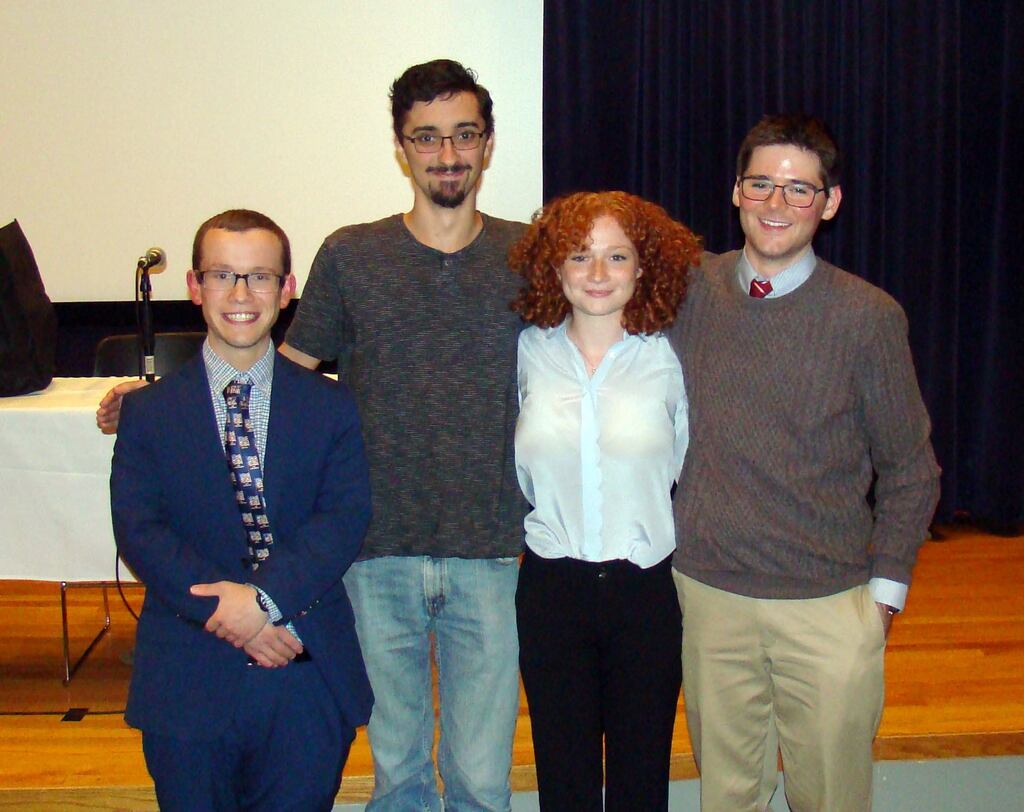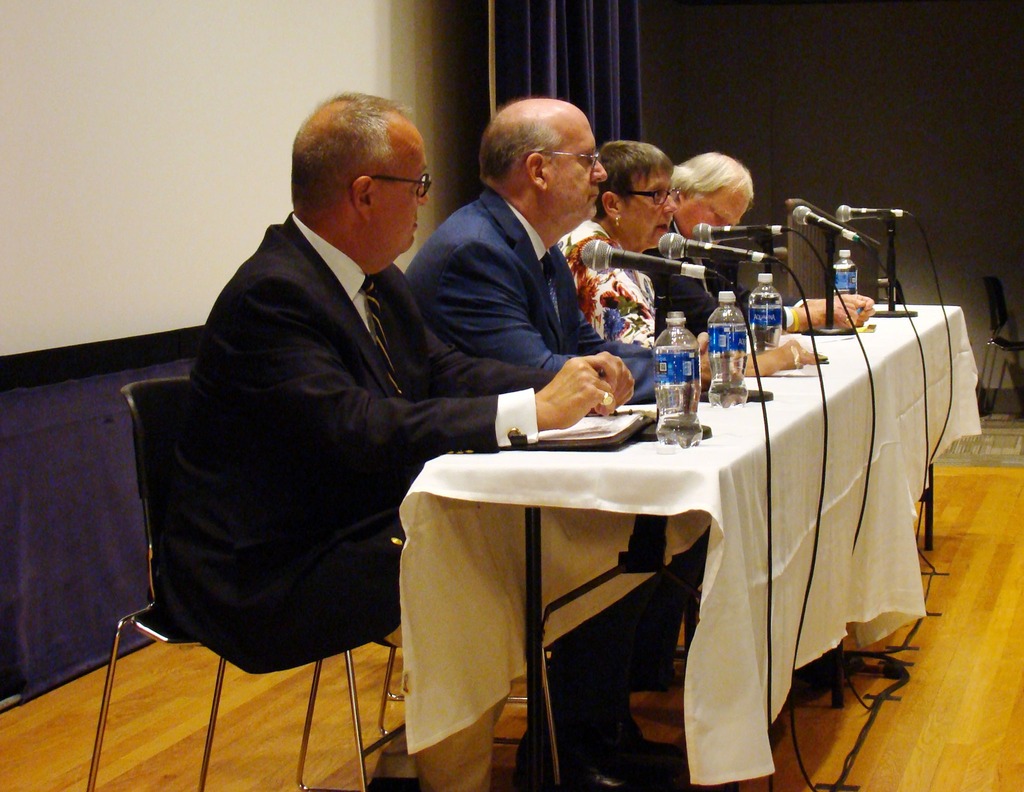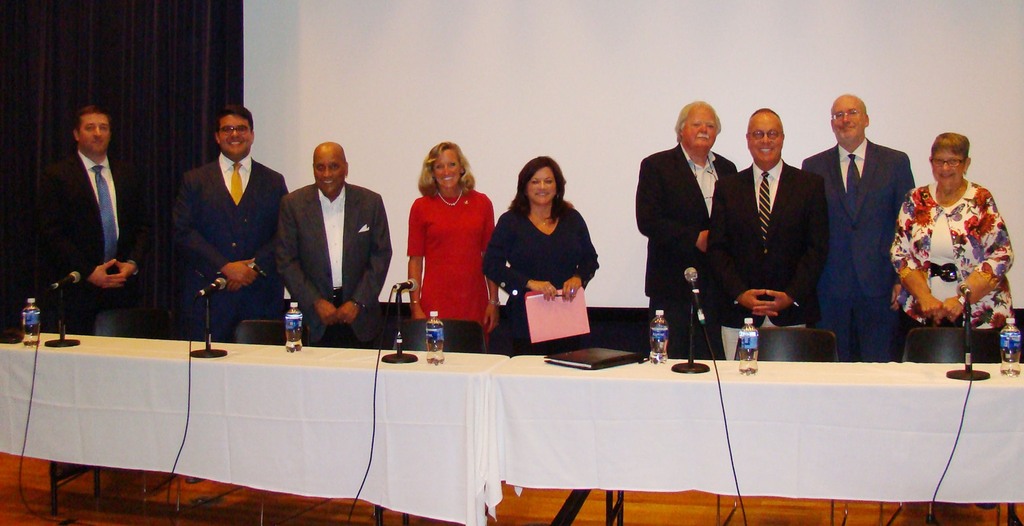Constitution Panel 2019 : Celebrating the U.S. Constitution
University of Delaware students convene panel of legal scholars and policy makers

By Justin Richards, University of Delaware junior and intern for the University of Delaware’s Center for Political Communication
Note from Justin Richards, President of the History Club at the University of Delaware?The University of Delaware’s History Club recently celebrated the U.S. Constitution’s legacy with a panel discussion involving policy makers and legal scholars. After many months of planning, I was very pleased with the outcome of both panels and the turnout. I greatly appreciate all the support from departments and student clubs that were able to make this event possible. I hope that this event like others across campus inspires more civic engagement and education among students by learning from the lessons of the past. I believe that engaging with the past is the only way we can move forward as a society in the future.
OCTOBER 18, 2019″The United States Constitution has been vital to every era of American history since it was signed on September 17, 1787. The University of Delaware’s History Club celebrated the federally observed National Constitution Week (September 17 to 23, 2019) with a panel discussion on Thursday, September 19. The two-part panel featured “The Constitution and Delaware’s role,” and “Current State & Federal Implications of the Constitution.”

Edward Freel, a retired University of Delaware instructor and former Delaware secretary of state, moderated the first discussion with Jonathan Russ, a UD history professor; Eric Rise, a UD criminal justice professor; and Madeline Dunn, a coordinator with the Delaware Division of Historical & Cultural Affairs National Register. They discussed the divisions in social class and political philosophy during the colonial era. According to Rise, there could have possibly been a different outcome at the Constitutional Convention if many antifederalists like Patrick Henry had decided to show. Many of the signers did not represent the ordinary public and were often elites consisting of many plantation owners and lawyers, said Russ. He described the background of the many Delaware representatives at the Convention, including John Dickinson, George Read, Jacob Broom, Gunning Bedford Jr., and Richard Bassett, to show illustrate their similarity with the rest of the delegates.

John Dickinson was widely influential in his era, Dunn explained, and is remembered for writing the first drafts of the First Amendment. Known as the “Penman of the Revolution,” Dickinson’s contributions to political thought included his famous “Letters from a Farmer in Pennsylvania,” “Olive Branch Petition? and then the “Articles of Confederation.” His failed arguments against independence in 1776 did not prevent him from serving in the Revolutionary War. He even drafted an artillery manual while serving in the Continental Army, said Dunn. Freel remarked that Dickinson’s contribution could be seen even in music with the “Liberty Song,” widely popular in his era (Songs of America, Meacham and McGraw, 2019).
In the second panel discussion, politicians and policy makers debated whether the Constitution should be interpreted according to the “originalism? view or as a “living document.” Nancy Karibjanian, director of the Center for Political Communication, moderated the discussion with Bryan Townsend and Anthony Delcollo, State Senators from the 7th and 11th district; Professor Leland Ware, Louis L. Redding Chair for the Study of Law and Public Policy; and Claire DeMatteis, commissioner of the Department of Correction. State Senator Townsend believed that the nation must change to adapt to the current era that often sees money in politics and some undemocratic features of the Constitution. State Senator Delcollo believed that the current system should be preserved and that policy makers should solve current issues by looking at the “intent? of sections of the Constitution.
Commissioner DeMatteis thought that the resiliency of the Constitution can continue as it has through the Civil War and Reconstruction Period and the Vietnam War. She also believed that the only way that things can change is through the involvement of younger generations.
